Our impact
Equal Chances harnesses the power of collaboration to enrich people’s lives, strengthen communities, and conserve natural resources, culture and heritage. We connect people and help communities, businesses and organizations to develop the tools and relationships they need to build a better future.
- Carolina Tourism Project
- Washabo
- Climate Promise
- REDD Plus
- Adaptation Fund Project Proposal
- Baseline Study
- Country-Level Programme Review
- ICT and Creative Industries
- West Suriname Tourism Project
Carolina Tourism Project
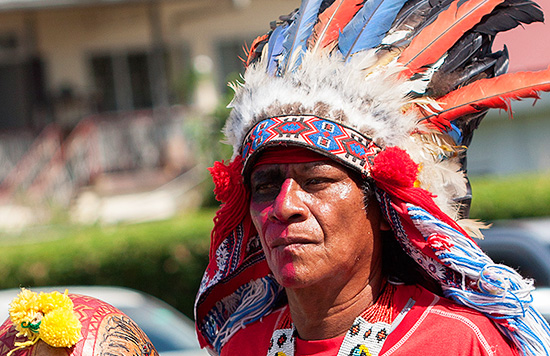
Description of Project
The project a “Model for Increased Participation by Indigenous Communities in Suriname’s Tourism Product”, which started in 2012, was a collaboration among the indigenous communities in the Carolina area, Dfid/UK Aid (Cartfund), CDB, IICA, and Equal Chances. The project aimed at strengthening the indigenous communities Small Powakka, Powakka, Pierre Kondre, Redi Doti, and Cassipora to achieve their agro-ecotourism potential. This intervention, an initiative of local leaders, was conducted to offer the community members alternative livelihood options from ‘destructive practices’ such as gold mining, slash and burn agriculture, and clear-cutting/forestry. As such it contributed to the country’s mitigation efforts.
It was important to get a clear understanding of the communities’ vision for development and encourage ownership in the start-up phase of the project. This was done via several activities such as communications and action planning. The project aimed to have the communities in the driver’s seat as much as possible. This was achieved via extensive engagement: information-sharing, consultation, collaboration, joint decision-making, and empowerment.
Description of the actual services
CDB/CDRRF, IICA, and Equal Chances assisted the indigenous community in articulating their vision and developing a plan of action for the community’s increased participation in Suriname’s tourism sector thereby building on Suriname’s existing eco-/nature tourism products.
The developed communication and awareness strategy was key in realizing the following goals.
- Improved the capacity of the Para district to take ownership of the community’s development
- Improved stakeholders’ awareness of the potential of the sustainable use of the assets of the Carib community of Para district, in improving Suriname’s tourism product
- Sensitized key stakeholders on the use of community asset mapping to inform the design and operation of economically and environmentally sustainable community-based tourism enterprises – as a model for increasing indigenous communities’ participation in the tourism sector
- Increased stakeholder commitment/support to increasing tourism-related economic activity within, and the development of, the indigenous communities
- Contributed to the creation of a more enabling environment for community-based tourism activity within the indigenous communities, and/or involving the Indigenous people of the Para district
- Increased the level of community-based tourism within the Carib community, and/or involving Caribs, of Para district.
The project had the following concrete deliverables:
Reports: Community-based asset map and action plan (2014), Business plans for each of the four villages (2015), Description of Pierre Kondre nature trail (2015), Description of the Redi Doti nature trail (2015), Strategy Paper for the Future (2015)
Infrastructure in the villages: Support to cassava processing facilities in Klein Powakka, Establishment of Multicultural facilities in Powakka, Trail development, sanitary facilities, rest stop and dock improvement at Jodensavanna (Redi Doti), Establishment of new huts, and a first-aid facility at Blaka Watra.
Washabo
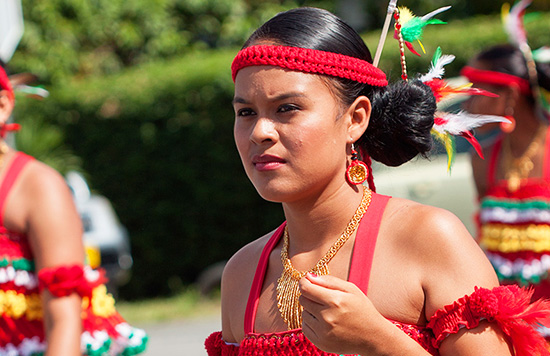
In 2012, the Foundation for Development of Washabo (SOW), located in the Sipaliwini district on the Corantijn River, launched a project to develop community tourism with funding from the Small Grant Program (SGP) Suriname. This project aims to preserve the indigenous culture and biodiversity of the Kaburi Creek.
De area contains many attraction for tourist including, the local production of Krappa oil and handicrafts, rapids and creeks (in particular the Kaburi Creek) and the traditional indigenous way of life.With several tour operators visiting the area, an opportunity exists for a reliable coordinator to be the intermediary between the local service providers and tour operators. Together with SOW, Equal Chances developed a practical guide designed to help community tourism in Washabo and neighboring areas.
Climate Promise
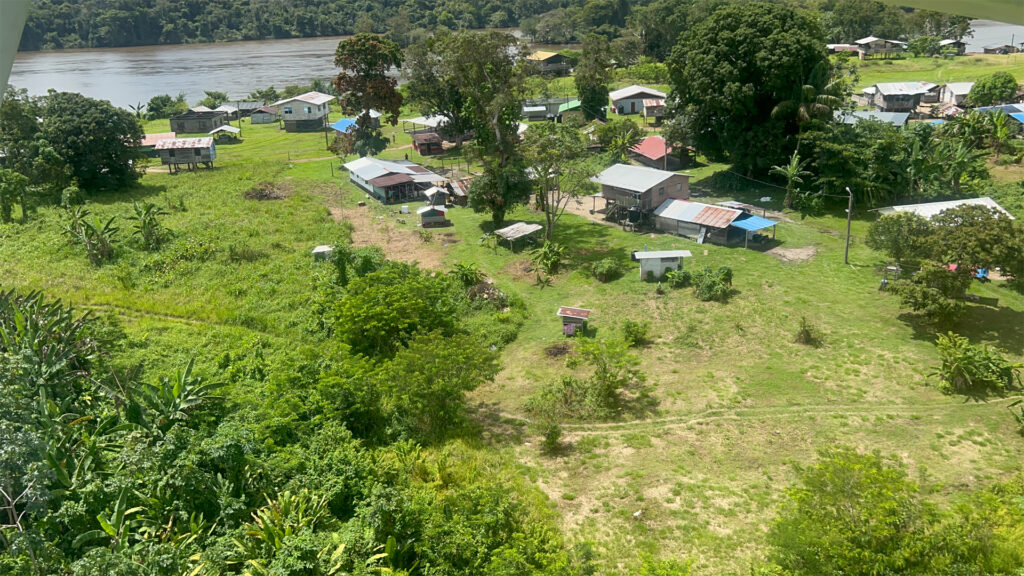
UNDP is supporting the Government of Suriname with the implementation of several interventions. These interventions such as NAP ASGM, EMSAGS, EnGenDER, GCCA+ phase 2 respond to specific national objectives and priorities in Suriname and are aligned with Suriname’s National Development Plan 2017-2021 and the Nationally Determined Contribution (NDC) 2020. Additionally, they support the implementation of the national REDD+ strategy, Adaptation Plan, and Framework Environment Law.
The UNDP Climate Promise Project aims to support Suriname in the realization of its national development and climate change objectives in general and specifically to bring awareness and galvanize support for the implementation of Suriname enhanced NDC.
Description of the actual services
Develop and maintain excellent working relationships with local authorities, government departments, Indigenous community and Tribal leadership, Local Community organizations relevant stakeholders, and partners.
Coordinate Climate Promise project activities in general.
Oversight and provide support to project activities that increase the capacity of local stakeholders to respond and adapt to climate change impacts, through localized awareness, training, site-specific action plans and implementation of actions, specifically through the coastal littoral forest and mangrove replanting and restoration.
REDD Plus
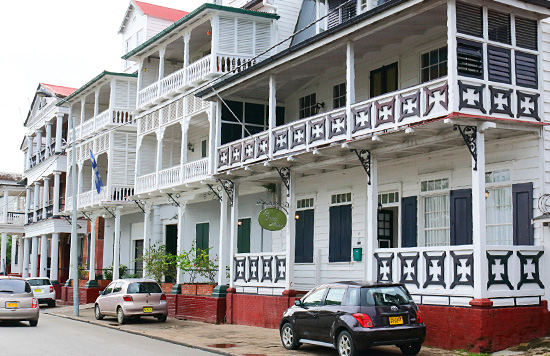
Description of Project
REDD+ (Reducing Emissions from Deforestation and Forest Degradation and the role of conservation, sustainable management of forests, and enhancement of forest carbon stocks in developing countries) is an international multilevel forest governance program based on fiscal compensations as an incentive for climate change mitigation. Belize chooses to participate in REDD+, apply forest policies to protect and restore forest carbon, and receive fiscal compensations. The nature of REDD+ grievance redress is based on ‘do no harm’ (e.g. resolve systemic problems), mitigative (e.g. identifying conflicts before they escalate), ‘do good’ (e.g. social inclusion and empowerment), and transformative (e.g. capacity strengthening, monitoring of tenure rights resolution).
REDD+ implementation due to its characteristic rights-based approach, and payments for carbon conservation have been challenging due to existing conflicts (e.g. land tenure, resource). The Feedback Grievance Redress Mechanism has been put in place to receive feedback and grievances and aims to improve the program and provide a satisfactory resolution.
Description of the actual services
In analyzing the context through consultations and literature review, Equal Chances identified three types of grievances related to REDD+ Belize:
- Institutional grievances – This type of conflict refers to stakeholder concerns about the functioning of government institutions and civil servants related to institutions related to land use. This stems mainly from distrust of the government by the stakeholders.
- Resource grievances – related to access to resources. There are significant levels of dissatisfaction at the local level related to decreased availability of resources due to the inaccessibility of areas and environmental damage.
- Land-related grievances – These types of conflicts have to do with institutional grievances, resource grievances, and issuance of licenses and tenure/ownership. Customary land users (e.g. indigenous peoples) often are involuntarily relocated due to State-issued-property rights licenses.
Based on engagement and dialogue, Equal Chances developed the REDD+ FGRM system in Belize: a national coordinating structure and procedures to receive, process and investigate complaints from affected stakeholders under the REDD+ implementation.
The FGRM is used for the following purposes:
- As an information-sharing mechanism to respond to queries from the general public.
- As a tool to help the implementation process and enhance operational efficiency in a variety of ways, including generating public awareness about REDD+ and its objectives; mitigating risks to the initiative by identifying problems early;
- As a mechanism to provide practical suggestions/feedback that allows them to be more accountable, transparent, and responsive to the needs of various stakeholders; assessing the effectiveness of internal organizational processes; and increasing stakeholder involvement in the initiative.
- As a tool to evaluate land-use conflicts to steer policy to decrease the number and type of future complaints
The FGRM -based on consensus between the government, private sector, and local communities- is accessible, transparent, rights compatible, fair, accepted and benefits from continuous learning. Free Prior Informed Consent (FPIC) principles were respected in consultations with Indigenous and Tribal Peoples (ITPs). Continuous learning and improvement are guided by the Consultation Plan and Operations Manual, which were also developed under this assignment.
Adaptation Fund Project Proposal
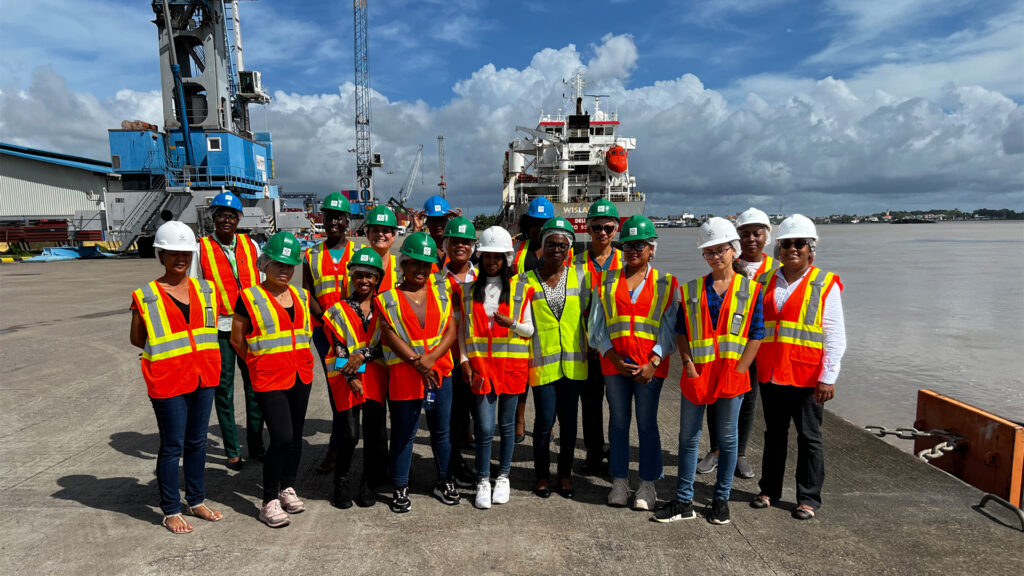
Description of Project
Our team prepared a draft Full Project Proposal for the Adaptation Fund (AF) endorsed concept “Enhancing the Resilience of Belize’s Coastal Communities to Climate Change Impacts”, according to the AF Operational Policies and Guidelines. We also developed an outline of a monitoring and evaluation system and grievance redress mechanism for the project.
Description of the actual services
Due to Climate Change, Belize’s coastal communities are losing their properties and homes. To mitigate the effects of climate, the Government of Belize hire Equal Chances to prepare a Full Project Proposal to the Adaptation Fund, including Stakeholder consultations, Feasibility Assessment, Social and Gender Assessment, and identify risk mitigation measures using the Capacities and Vulnerabilities Analysis Framework. The project consists of the following:
- Component 1, Improving coastal land use for resilient habitation and sectoral activities, focuses on strengthening the governance and will provide a formal structure to address the challenges that arise due to continued growth in coastal areas. Component 1 consists of two subcomponents: ‘Development of the National Housing Policy and Building Codes for resilient habitation based on vulnerabilities’ and ‘Strengthening the implementation of the Integrated Coastal Zone Management Plan and associated management guidelines for zonation’.
- Component 2 consists of three subcomponents: ‘Development of a national coastal saline intrusion program’, ‘Develop and implement a National Beach Erosion Monitoring Program’, and ‘Building the infrastructural capacity of the NMS to develop a coastal early warning system and model storm surge’.
- Under Component 3, the National Climate Change Office (NCCO) seeks to recover beach areas lost due to coastal erosion in Dangriga and Hopkins. Recovery of beach areas will allow for the development of a mechanism to recover areas lost to erosion which can be replicated in areas with similar attributes and modified to fit specific needs. It will also lead to the extension of storm and erosion protection in the selected areas, increasing their adaptive capacity and will decrease the probability of infrastructure being lost in the area in the future.
- Component 4 focuses on awareness raising, knowledge dissemination, and national capacity strengthening. It will strengthen the capacities of local government officers, the private sector, and communities. The components consist of three subcomponents: ‘Development of a National Climate Change Communication Strategy and Action Plan’, ‘Development of training modules for best coastal adaptation practices’, and ‘Strengthening of GIS capabilities within the CZMAI’.
The proposal can be downloaded: https://www.adaptation-fund.org/project/enhancing-the-resilience-of-belizes-coastal-communities-to-climate-change-impacts/
Baseline Study
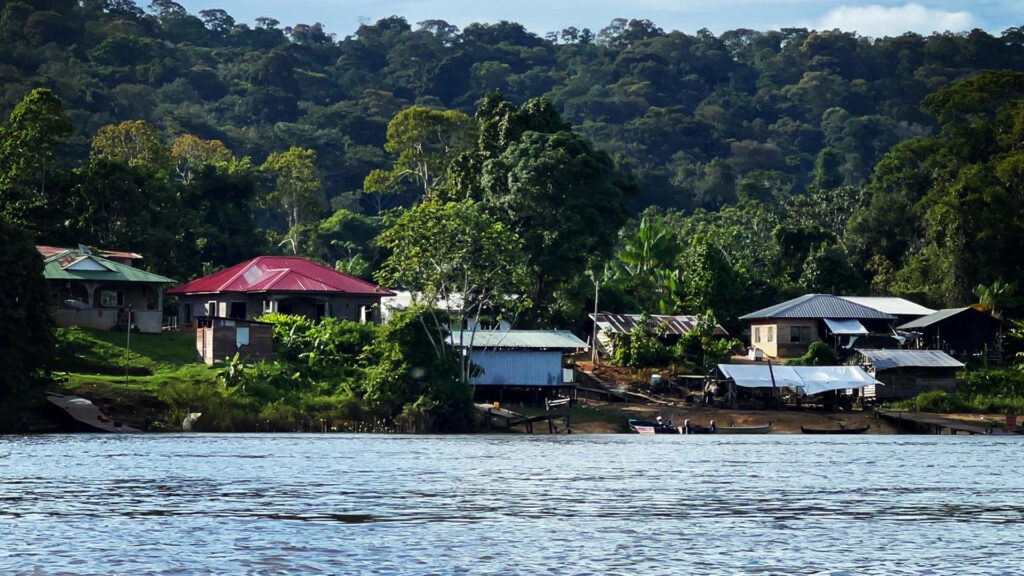
Description of Project
The project intends to provide infrastructure, knowledge, and skills for community members to be powerful advocates for change; i.e. make communities less vulnerable to the impacts of climate change by strengthening climate-resilient livelihoods. Equal Chances conducted a Baseline assessment and:
- Provided indicators for future performance measurements and provide critical reference points for output, outcome, and impact assessments of the Community Disaster Risk Reduction Fund (CDRRF) Project, at the end of the Project’s implementation period. Changes that allow the beneficiaries to manage climate risks and adapt to climate change are of particular interest. The beneficiaries’ engagement included the enhancement of civil society participation in climate projects/program development.
- Provided information for the Project’s M&E and Knowledge Management and Public Education and Awareness Activities.
For the baseline study, Equal Chances experts collected, processed, and interpreted the baseline data to provide KIIs for project monitoring. 418 surveys in 11 local communities were conducted while respecting a gender balance among respondents. The data collected was related to climate change, agriculture, and other livelihoods.
Description of the actual services
- Explore social differentiation for example among disability status, level of education, youth, women, and men.
- Establish from a social and gender lens, key socio-economic and environmental indicators and baselines as they relate to disaster risk management and climate change adaptation in the project beneficiary communities.
- Provide an objective profile of the partner agencies’ capacity, role, and level of support of various government and social services agencies within the Toledo District; and
- Make recommendations on refining and/or addition of the project’s key indicators and targets based on findings of the study.
The deliverables of this assignment were a Baseline report and a Gender research report. Equal Chances presented our findings and participated during CDB/CDRRF/BNTF’s Livelihood Profiles workshop (Placencia, Belize. Feb 2019).
Country-Level Programme Review

Description of Project
Climate change continues to be one of the greatest challenges facing our planet and humanity today, and local communities and Small Island Developing States (SIDS) continue to be at the frontline of its impacts. In 2009 the GEF Small Grants Programme (SGP) entered into a partnership with the Australian Overseas Aid Programme, now assimilated with the Australian Government Department of Foreign Affairs and Trade (DFAT). With US$12.4 million in funding from DFAT, the objective of the partnership was to improve the resilience of local communities in 42 countries.
Description of the actual services
The MAP and SIDS Community Based Adaptation program will be operationally closed in 2020. Equal Chances was hired to conduct a country-level review for the MAP and SIDS community-based adaptation program in Suriname. The objectives of the review were to assess the achievement of CBA project results against the projected outcomes and to draw lessons that can improve the sustainability of benefits from the CBA project, and aid in the overall enhancement of GEF SGP programming.
The Equal Chances evaluation team framed the evaluation effort using the OECD-DAC criteria of relevance, effectiveness, efficiency, sustainability, and impact. Attention was also paid to social inclusion aspects of the program (gender, persons with disabilities, indigenous peoples), private sector engagement, and policy influence. The methodology included key informant interviews, focus group discussions, as well as the conduct of vulnerability risk assessment. The Equal Chances evaluators concluded that the national CBA portfolio has successfully made an impact on the achievement of:
- Capacity strengthening among the NGOs and CBOs for designing and implementing community-based adaptation measures.
- Adaptation to climate change mainstreamed at the community level by preventing community displacement and property loss using mangroves, climate-resilient agriculture, and education; and
- Upscaling practices and sharing knowledge for increased uptake of community-based adaptation experiences from SIDS CBA documented for replication purposes.
ICT and Creative Industries
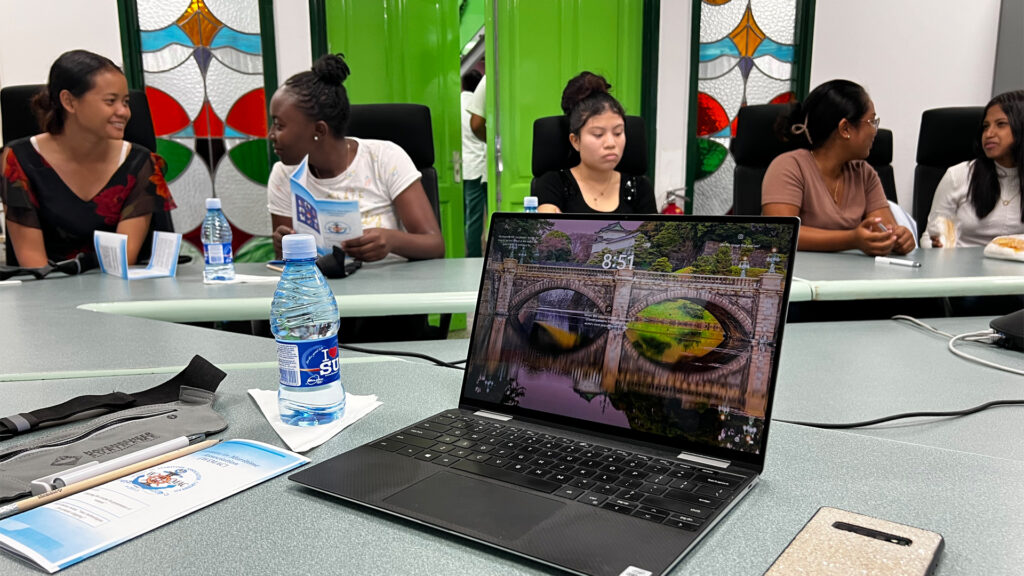
Description of Project
MTIT aimed at the growth of the creative and ICT sector and strengthening its capacity for supporting the growth and development of the creative economy. The creative sector is a worldwide fast-growing economic sector that holds great potential for developing countries, direct impacts on value-added, employment and exports doubled over the last decade. Besides the direct impacts of the sector, the sector indirectly contributes to the growth of productivity and export in other economic sectors because it enhances innovation and crossovers (arts, newspapers, books, music, radio and television, advertising, architecture, fashion, games, and design).
To create optimal conditions for a flourishing ecosystem for the creative and IT sector in Suriname, there was a need for baseline figures: a monitor that provides data about the economic performance of the sectors that are specialized in the creation, production, publishing, distribution, and storage of information
Description of the actual services
- Quantify the economic contribution of ICT and creative industries in Suriname by analyzing and estimating their value-added to GDP, the share of national employment and revenue generated from foreign trade;
- Analyze and elaborate on the ICT and creative industries in Suriname, their national market structure, value chain, demand and supply patterns, labor market, policy framework, support from the public and civil sector including the role of collective management organizations and other copyright-related organizations, financing mechanisms, implications of the digital environment, among others;
- Carry out the relevant econometric analysis on the productivity of the sectors, and train local stakeholders in the analysis thereof;
- Propose policy, strategy and institutional interventions for encouraging the growth and development of cross-media in Suriname and develop an implementation plan for the development of cross-media in Suriname.
Primary data was collected utilizing an online survey using Survey Monkey and by phone.
West Suriname Tourism Project
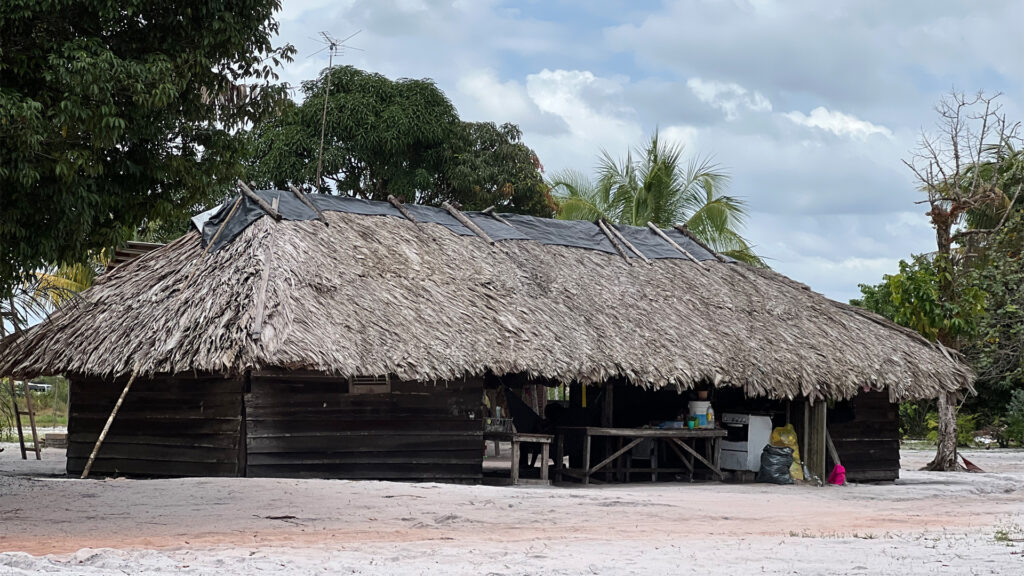
Description of Project
The Foundation for Development of Washabo (SOW), located in the Sipaliwini district on the Corantijn River, launched a project to develop community tourism with funding from the Small Grant Program (SGP) Suriname. This intervention, an initiative of local leaders, was conducted to offer the community members alternative livelihood options from ‘destructive practices’ such as gold mining, slash and burn agriculture, and clear-cutting/forestry. As such it contributed to the country’s mitigation efforts.
This project is aimed at preserving the indigenous culture and biodiversity of Kaburi Creek. The area contains many attractions for tourists including, the local production of Krappa oil and handicrafts, rapids and creeks (in particular the Kaburi Creek), and the traditional indigenous way of life. With several tour operators visiting the area, an opportunity existed for a reliable coordinator to be the intermediary between the local service providers and tour operators.
Description of the actual services
Because of the success of the livelihoods project ‘A Model for increased participation by Indigenous Communities in Suriname’s Tourism Product’ Equal Chances was requested to support the Washabo Indigenous community to identify their sustainable livelihood opportunities. Together with the community members, Equal Chances developed a practical guide designed to help community tourism actions in Washabo, Apoera, Section, and Sandlanding. Tourism entrepreneurs from these indigenous villages were trained and certified in tour guide techniques.
